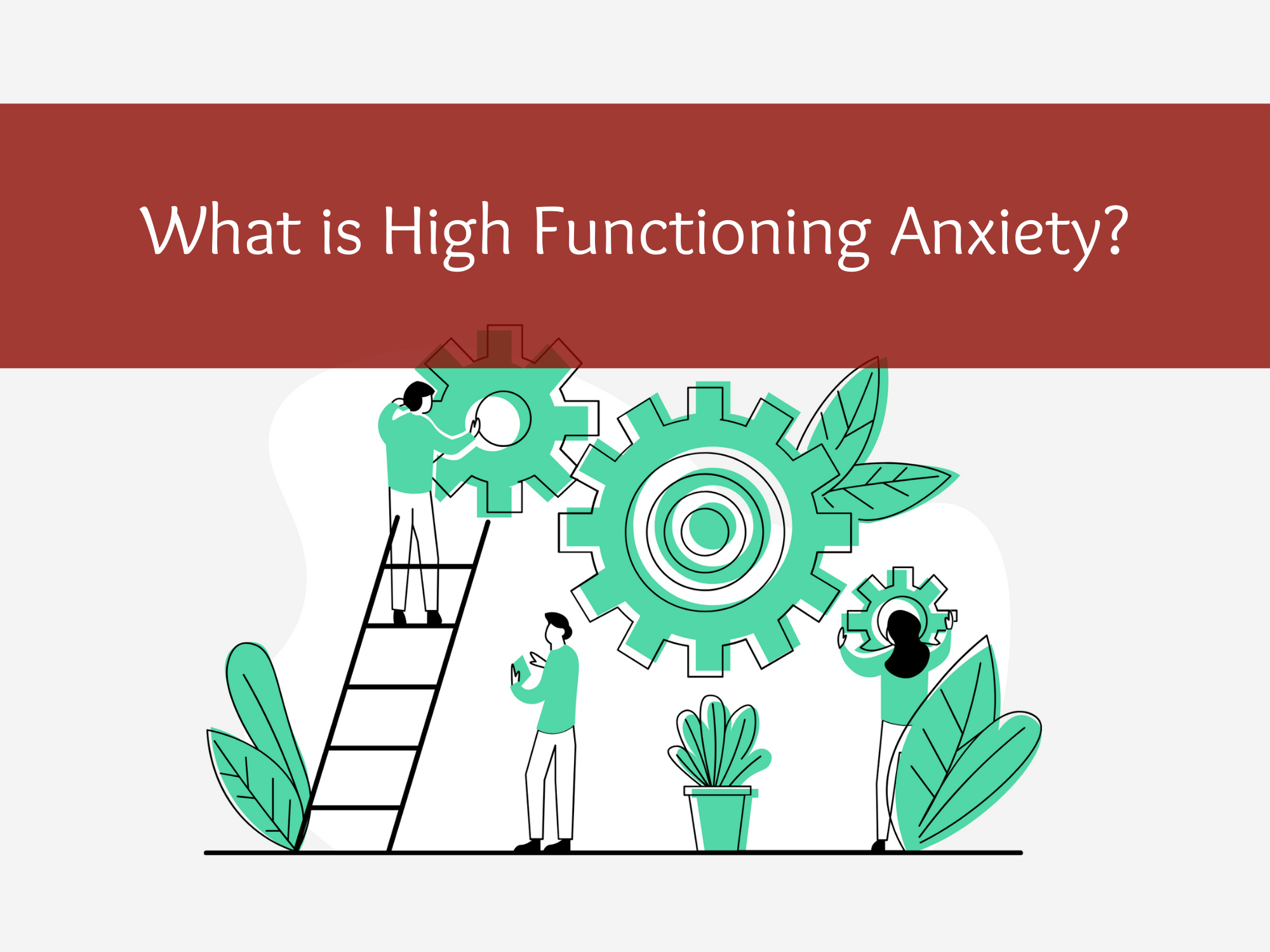We all face a little anxiety every now and then. But did you know that in the United States, anxiety disorders are actually the most common mental health struggles?
The Anxiety & Depression Association of America notes that even though they’re “highly treatable,” less than 40% of people receive treatment.
Whether you know you’re anxious, or you’ve developed habits you didn’t used to have, you’re not alone. There are many forms of anxiety, and how it appears in each individual is unique.

What is an Anxiety Disorder?
Anxiety might feel like a buzzword. It’s often used that way, and tossed around casually, as if it’s not a legitimate and often serious mental health condition.
But what is it? What makes it different from “normal” worry, and if you’re trying to determine if you’re suffering from it, how do you do that?
Anxiety is an emotion typically “characterized by feelings of tension, worried thoughts and physical changes like increased blood pressure.” People with anxiety disorders usually have “recurring intrusive thoughts or concerns” (American Psychological Association).
Sometimes people with anxiety disorders avoid situations because it will cause too much stress, and often there are physical symptoms involved such as dizziness, sweating, and/or a quick heartbeat.
In short, anxiety isn’t simply worrying about things. Anxious thoughts and recurring worries affect daily tasks, and can cause physical symptoms, too.

What is High Functioning Anxiety?
Anxiety can be debilitating. It can make you second guess every decision, and lead to chronic fear and inaction. People with anxiety disorders can feel like they’re stuck in their anxiety and be unable to move forward or do anything because of the associated fear and panic.
Not everyone’s anxiety looks or feels the same, though.
Some people who suffer from a high level of anxiety still perform, sometimes even “better” than their peers, while dealing with anxiety. They’re people you may not even realize have anxiety because on the outside, they appear perfectly fine or “normal” or even quite successful.
They may have what’s often called high functioning anxiety. Although this term isn’t a specific medical diagnosis, there are undoubtedly a large number of people who deal with it every day.
The primary difference between diagnosable anxiety disorders and high functioning anxiety is the ability to go about life on a somewhat regular basis. People with high functioning anxiety typically function fairly well in everyday life, which may lead them to believe they don’t have an anxiety disorder.
Individuals with anxiety disorders have, at some point, gotten to a place where they could no longer function in their everyday lives due to their mental health diagnosis.
People with anxiety disorders who have been treating them with medication and/or in therapy can be high functioning, too. They’re not entirely mutually exclusive. Because of this, the conversation around high functioning anxiety can be confusing.
It’s not always seen as a legitimate problem, or one that needs to be addressed, even though it can be just as harmful as medically diagnosed anxiety.
It’s no wonder so many people with anxiety remain untreated if they don’t understand that their anxiety is actually a treatable condition!

Signs of High Functioning Anxiety
You’re probably wondering what high functioning anxiety looks like, if it appears “normal.” We humans have a tendency to immediately look for symptoms when we hear about a new term, especially one related to health.
In the age of Google and WebMD, we have access to a lot of information that can help us figure ourselves out a little more (or make us worry unnecessarily). If you feel your anxiety has become unmanageable, or that you need help, you should reach out to a therapist or medical professional for help. This article is not meant to diagnose any medical conditions.
Some signs of high functioning anxiety may include:
- Constantly working or overworking
- Intentionally overscheduling your life
- A nonstop need to achieve
- A chronic need to please people
- Always being prepared or over prepared for any situation
- Over the top organization, which many include lists & calendars
- Inability to relax and enjoy the moment
You’ll notice that many of these characteristics are things we see as positive in the workplace. Being prepared and organized and working hard aren’t usually a “bad” thing, right?
The delineation between having these qualities and having high functioning anxiety, or an untreated anxiety disorder, are the intensity with which you do them.
Being busy isn’t necessarily bad, especially for people who have jobs working directly with others, like project managers. Having every minute of every day scheduled out with no down time and no plan in the near future is bad. Never taking time away from work to rest and rejuvenate isn’t okay either, and may be a sign of high functioning anxiety.
Being prepared is a great way to be successful at work, and even at home! But over preparing for every possible catastrophe and obsessing about it isn’t productive or healthy. If you’re constantly worried about the what-ifs and unable to focus on anything in the present, it may be a sign of anxiety.
There might also be physical signs of high functioning anxiety such as:
- Nervous habits like picking the skin around the nail beds or biting lips
- Chronically overthinking and/or overanalyzing
- Having a racing mind that never seems to slow down
- Being tired all the time
- Having sleep issues such as insomnia
- Faster breathing and heart rate
- Headaches and/or migraines
Some individuals have more physical effects than others from their anxiety, but all of these signs are obviously problematic in everyday life. They’re all also often attributed to other areas of life or not seen as a serious problem.
For instance, overthinking and overanalyzing is often seen as a strength that people are good at thinking through “all the possible outcomes,” when in reality, their anxiety simply won’t allow them to stop thinking about it.
Some of the more physical signs aren’t obvious to others outside of the person suffering. If you’re sitting at lunch with someone, they probably won’t be able to tell that your mind is racing or that your heart is racing. They might be able to tell something is “off,” but they’re not in your body with you.
Many physical symptoms are also side effects of other medical conditions, too, not just anxiety. If you have physical symptoms like these on a regular basis (whether or not you think it’s anxiety) you should seek help from a medical professional. Let them know you’re concerned about anxiety, and they can advise you on the best next steps to help alleviate your symptoms.

